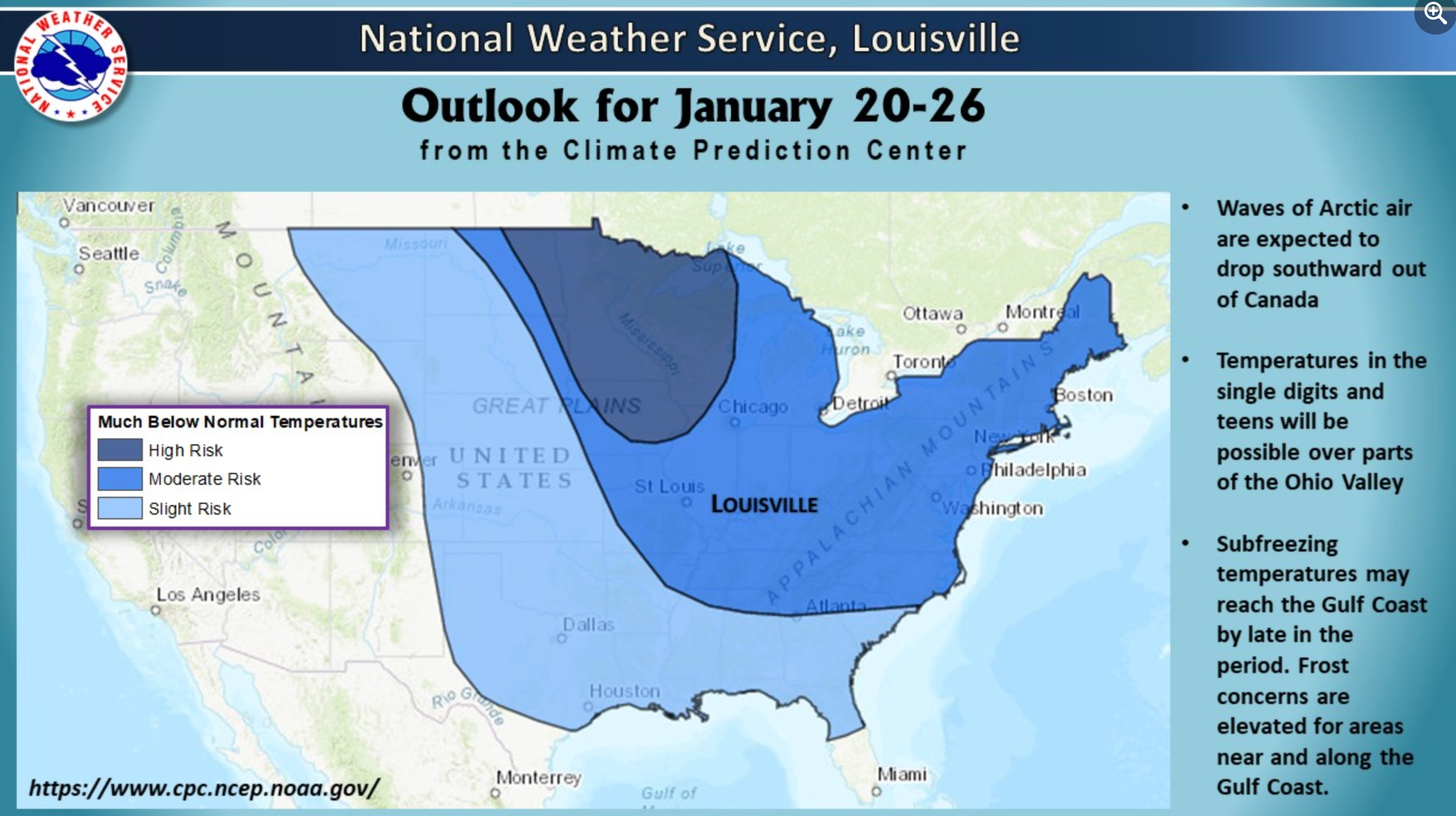Winter storm Izzy: ‘Potentially significant’ big freeze on its way for US
Chance of heavy snow in the southern Appalachians on Saturday and the increasing likelihood of ‘potentially significant’ ice in northern Georgia, through western Carolinas, and into south-central Virginia
Your support helps us to tell the story
From reproductive rights to climate change to Big Tech, The Independent is on the ground when the story is developing. Whether it's investigating the financials of Elon Musk's pro-Trump PAC or producing our latest documentary, 'The A Word', which shines a light on the American women fighting for reproductive rights, we know how important it is to parse out the facts from the messaging.
At such a critical moment in US history, we need reporters on the ground. Your donation allows us to keep sending journalists to speak to both sides of the story.
The Independent is trusted by Americans across the entire political spectrum. And unlike many other quality news outlets, we choose not to lock Americans out of our reporting and analysis with paywalls. We believe quality journalism should be available to everyone, paid for by those who can afford it.
Your support makes all the difference.The US East Coast is set to be blasted a big freeze in the coming days but whether the forecast will play out as snow, ice, or freezing rain is still uncertain.
The National Weather Service’s Weather Prediction Center (WPC) reported on Thursday that wintry weather is expected across the Appalachian Mountains and parts of the eastern seaboard over the weekend.
A developing low pressure system will move across the Southeast this weekend, WPC reported, bringing moderately to locally heavy rain before pivoting northwards and driving the conditions up the East Coast into Monday. Strong winds could lead to high waves and the threat of coastal flooding along Northeastern shores.
Weather hazards will run the gamut from the event, named Winter Storm Izzy by the Weather Channel.
There is a chance of heavy snow in the southern Appalachians on Saturday and the increasing likelihood of “potentially significant” ice, forecasters said, especially from parts of far northern Georgia, through the western Carolinas, and into south-central Virginia.
Forecasters noted that even slight changes in the track of the low pressure system could bring the potential of heavy snow potential into coastal parts of the East.

Forecasters with the National Weather Service (NWS) in Atlanta were waiting with bated breath for snowfall. The Georgia city last saw notable flurries in January 2018, the second-longest streak on record at 1,454 days.
“Needless to say, we are watching this weekend closely,” the agency tweeted.
From Tuesday, a separate but weaker low pressure system is forecast to track over the north-central US, and bring some snow to the Upper Midwest and Great Lakes.
The storm could dump nearly a foot of snow in parts of Iowa, forecasters said, with winds of 20-25mph threatening snow drifts particularly in open expanses and rural areas. Des Moines could see up to 11 inches of snow, NWS noted.
Meanwhile in the West, it will remain largely dry with the exception of light rain in the Pacific Northwest and Northern Rockies at the beginning of next week.
The East Coast will see cooler than normal temperatures with chilly lows below 0F expected in the interior Northeast early on Sunday, about 15-25 degrees below average.
By next Wednesday and Thursday, temperatures will fall to 10-20F below normal in the Upper Midwest.
Forecasts of a big freeze follows a heavy winter snowstorm which blanketed parts of the South and the Northeast last week and brought record-setting snow to some areas.
Nashville saw 6.3 inches last Thursday, shattering the city’s previous 44-year-old record of 4 inches.
Up to 10 inches of snow fell in Washington DC, parts of Virginia and Maryland, snarling traffic and grounding flights.
New England received a foot or more of snow while 5.5 inches fell on Central Park in New York City,
This winter, snowfall has been absent or late in parts of the country more accustomed to heavy flurries.
In December, Denver, Colorado broke an 87-year-old record for number of days without snowfall, and hit a high temperature of 73F (22.8C) on 4 December - tying a record set in 1973.
Salt Lake City, Utah had no snow throughout November, for only the second time since 1976.
It has been a similar situation across large areas of the Rocky Mountains, and in western states which have been suffering from a prolonged mega-drought driven by the climate crisis. The winter snowpack in the mountains is an important water source for the rest of the year.
Winter is the fastest-warming season in much of the US due to climate change. In the Northeast this is happening at triple the rate of summer warming.
Earlier this week, the country’s leading authority for environmental data reported that the US had 20 separate, billion-dollar climate and weather disasters in 2021 during its fourth-hottest year on record.
The annual summary, published by the National Centers for Environmental Information (NCEI), found that extreme events killed at least 688 people in 2021 – the most disaster-related fatalities for the contiguous US in a decade – and left dozens more injured.
The dangers of major winter freeze events, particularly in areas unused to such conditions, were highlighted last February when snow, ice and plunging temperatures swept across the south, causing much of Texas’ power grid and water systems to collapse, leaving 4.2 million people in the cold and dark.

Join our commenting forum
Join thought-provoking conversations, follow other Independent readers and see their replies
Comments